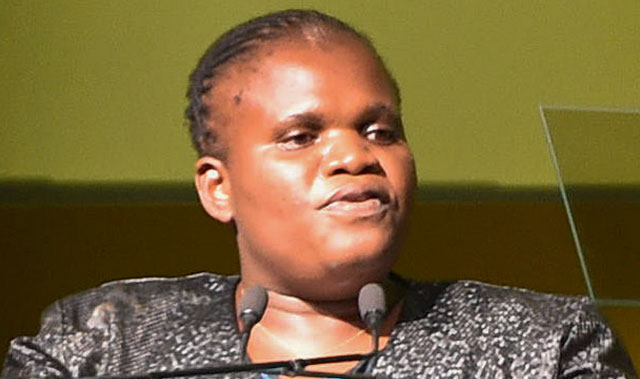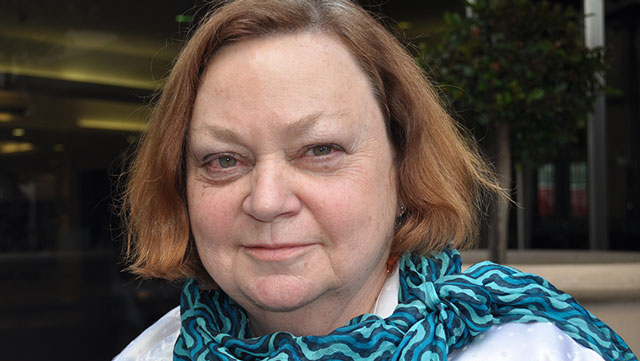
Government’s slow advance on its digital television set-top box roll-out is holding back faster, more widely available mobile Internet services, say experts.
It’s been almost a year since South Africa missed an International Telecommunication Union (ITU) deadline on 17 June 2015 to switch over to digital broadcasts.
This migration process, when completed, will move the SABC, e.tv and M-Net from analogue to digital terrestrial television (DTT) signals and open up digital dividend spectrum for faster mobile Internet.
Currently, mobile networks like Vodacom have to re-farm their existing spectrum to deliver faster LTE Internet services, a process that limits their ability to widely roll out this service.
Key to spurring on South Africa’s digital migration process, though, is its subsidised TV set-top box tender, which will provide five million poorer households with access to digital channels.
But the set-top box roll-out has faced years of delays amid broadcasters’ differences over whether these devices should or shouldn’t have a control mechanism for encrypted signals.
And just this week, upon a legal challenge from e.tv, the supreme court of appeal ruled that government’s recent decision not to encrypt these boxes should be struck down.
The court upheld e.tv’s complaint that communications minister Faith Muthambi had failed to properly consult relevant parties before deciding not to encrypt these boxes.
The high court in Pretoria heard arguments last year, from the SABC and M-Net, that including encryption on these boxes would add extra costs to the subsidised roll-out.
However, e.tv said an unencrypted signal would mean that “non-compliant” set-top boxes would receive digital broadcasts while further preventing it from offering high definition broadcasts.
Experts have also argued that unencrypted boxes could result in broadcasts being easily pirated, making it difficult for free-to-air broadcasters to secure rights to high quality content.
Arthur Goldstuck, MD of technology research firm World Wide Worx, said that e.tv’s victory could be positive and negative for South Africa’s digital migration process.
“It’s both a step forward and a step back,” Goldstuck said.
“It’s regrettable that it puts digital migration on hold once more, as the specs for the set-top boxes now need to be changed once again to require encryption capability.
“However, it’s also a step forward, as it allows for a more advanced platform to be distributed to all homes, opening up the possibility for new channels to be launched, and therefore greater potential for future migration from free TV to pay TV for those households that move up the income curve,” Goldstuck added.
The appeal court’s decision further means that government may have to fall back on a 2014 decision by former communications minister Yunus Carrim to provide a control system on subsidised set-top boxes.
At the time, Carrim said broadcasters were allowed to choose whether they want to use an encrypted signal or not as the subsidised set-top boxes would have a generic control system.
“Hopefully we’re back to the policy that was initially sort of accepted by Cabinet … in 2014,” the Democratic Alliance’s shadow minister for telecommunications & postal services, Marian Shinn, said by phone.

“Muthambi unilaterally amended that, and then the cabinet was bamboozled into accepting it. So, if we just revert to that policy, we should probably be alright,” added Shinn.
Shinn said the decision to bolt encryption features onto subsidised boxes would enable fairer competition among local broadcasters and help them to compete against pay-TV providers like Naspers-owned MultiChoice.
“Most of them who actually are in the competitive space with broadcasters like MultiChoice would actually encrypt their (signals) so that they can get decent quality programming,” Shinn said.
“They would be able to procure better quality programming because producers of content would be satisfied that their material would not be pirated, thanks to the encryption.
“So, for a quality, competitive environment, the boxes needed to be encrypted,” she added.
Mark Rosin, chief operating officer of e.tv, said in a statement on Tuesday that the appeal court’s decision “allows the possibility of a strong and stable digital terrestrial television platform to South African free-to-air television viewers offering the best local and international content.”
MultiChoice had previously sided with the SABC and Muthambi in calling for unencrypted subsidised boxes.
MultiChoice, at the time of writing, was not ready to comment yet on e.tv’s latest court victory.
“We’ve noted the decision of the appeal court and are currently studying the judgment,” said MultiChoice GM for corporate affairs Jackie Rakitla.
Meanwhile, Muthambi’s office said that her department will continue with its digital migration process despite the appeal court’s decision.
The department kick-started the roll out of set-top boxes to outlying areas in the Northern Cape last year. This year, the department has extended its roll-out to outlying areas in Limpopo.
“The supreme court of appeal did not order the reversal of the digital migration process. What the court did is to clarify a technicality which was embedded in the 2015 amended policy,” said the department in a statement.

But Shinn has explained that to date government has only managed to distribute encrypted set-top boxes.
“They’re rolling them out to the border areas which receive their signals from satellite transmitters not from the terrestrial transmitters,” said Shinn.
“So, all those boxes are encrypted anyway because no satellite operator will receive signals that are not encrypted. By and large, the boxes that have gone out are encrypted boxes,” Shinn added.
Other challenges that the department faces in rolling out set-top boxes include that government hasn’t yet proffered budget for the entire process, said Shinn.
Nevertheless, South Africa needs to go ahead with its digital migration process to open up frequencies for broadband.
“The importance of digital migration ranges from compliance with international standards in order to be good citizens of the world, through to the digital dividend of freeing up valuable spectrum that is ideal for high-speed broadband,” Goldstuck said.
“Digital broadcasting is more efficient, provides higher quality, and opens up capacity for far more channels, so it’s not a question of why, but of why not,” Goldstuck added.
Shinn said the digital migration project will help those on South Africa’s border to have access to Internet.
“The freeing up of the spectrum would actually make more people in remote areas able to connect to the Internet, it would bridge the digital divide. Those are the advantages of this,” Shinn said.
So, the longer we delay this, the more people in marginalised areas or underserviced areas are excluded from the information age,” Shinn added.




